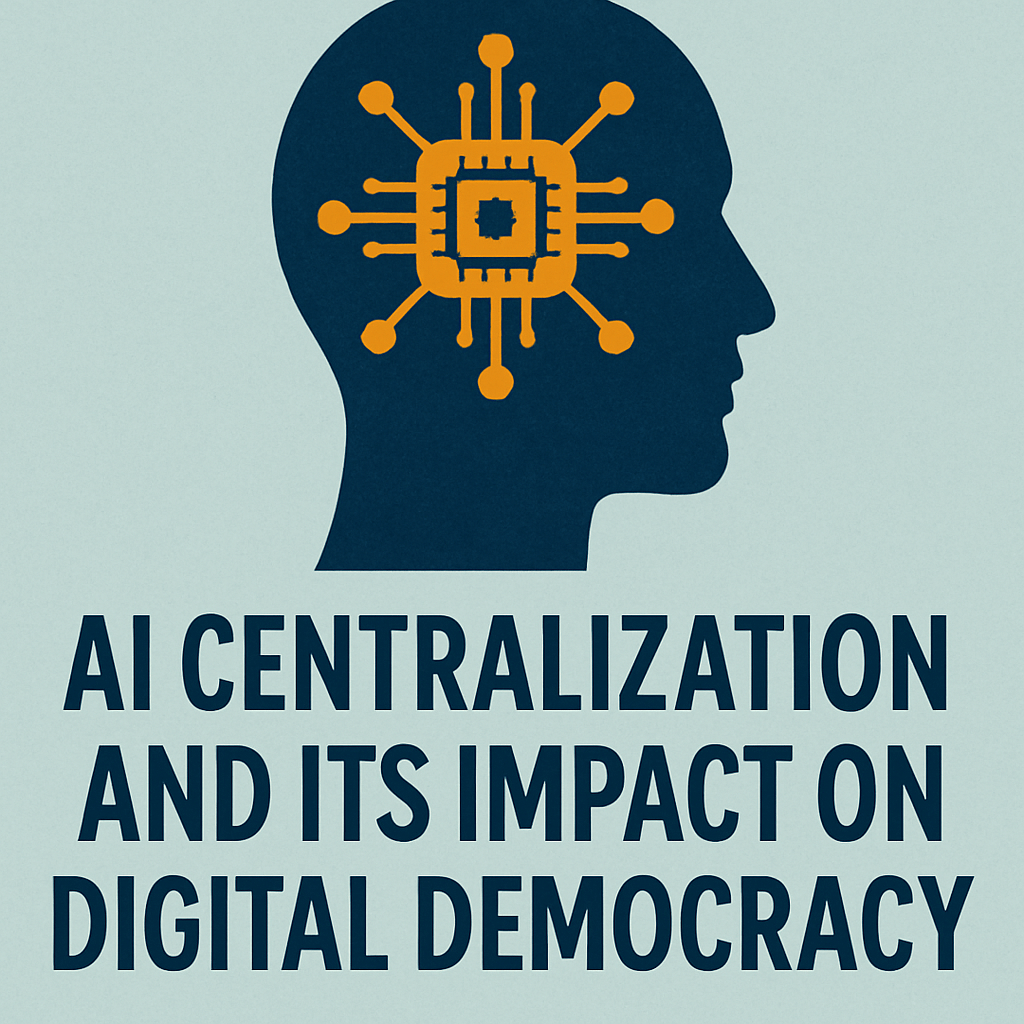AI Centralization and Its Impact on Digital Democracy


The landscape of artificial intelligence (AI) continues to evolve, with centralized AI models currently dominating market share. However, this consolidation carries significant implications for democratic values such as privacy, transparency, and ethical standards. In contrast, the decentralized AI industry is beginning to carve out its niche but must first demonstrate its security, reliability, and utility in practical applications.
Understanding Centralized vs. Decentralized AI
Centralized AI refers to systems where data and algorithms are stored and managed by a single entity, often resulting in efficiencies but also raising concerns about the single point of failure and data misuse. Examples of centralized AI systems include Google’s machine learning models and OpenAI’s GPT-3. These systems are trained on vast datasets sourced from various internet platforms, leading to potential biases inherent to the data that power them.
On the other hand, decentralized AI employs a distributed network of nodes, allowing for more transparent data handling through blockchain technology. This system can mitigate risks associated with data monopoly by decentralizing ownership and providing users greater control over their personal data. Technologies such as Federated Learning exemplify this by allowing models to be trained locally on devices while only sharing updates, not raw data.
Risks Posed by Centralized AI
- Privacy Issues: Centralized AI systems often aggregate user data, creating detailed profiles that can be vulnerable to breaches. In 2021, for instance, high-profile leaks raised alarms over the potential misuse of personal data, leading many consumers to demand tighter regulations.
- Lack of Transparency: Algorithms developed in a central setting may lack transparency, with users unable to understand how decisions are made. This contributes to a trust deficit and raises ethical concerns, particularly in sectors like finance and healthcare.
- Ethics and Bias: Centralized systems can perpetuate, and even exacerbate, biases present in training data. This has serious implications for fair representation and decision-making algorithms, potentially leading to harmful outcomes for marginalized populations.
The Path Forward for Decentralized AI
The growth of decentralized AI may offer solutions to the shortcomings of centralized counterparts. For instance, decentralized applications (dApps) built on blockchain can operate without a central authority, thereby promoting greater accountability, security, and user agency.
Importance of Security and Usability
For decentralized AI to gain traction, developers must prioritize security and user-friendliness. This entails building robust systems that not only protect user data from unauthorized access but also prove their efficacy in real-world applications. Recent developments, such as the launch of new decentralized marketplaces for AI models, have begun to influence the landscape, showcasing the viability of decentralized options.
Expert Opinions on the Future of AI
Industry experts emphasize that a balance between decentralized and centralized systems could pave the way for innovation while safeguarding democratic values. According to a report by the Stanford Institute for Human-Centered Artificial Intelligence, achieving an equilibrium between the two could lead to more inclusive growth in the AI sector.
Cynthia D. J. Wright, a leading AI ethics researcher, notes, “The shift towards decentralized frameworks can help mitigate the ethical risks associated with centralized systems while enhancing user empowerment and data sovereignty.”
Conclusion
The ongoing debate between centralized and decentralized AI underscores the critical necessity for dialogue among stakeholders. As AI technologies continue to advance, the collective responsibility of developers, policymakers, and consumers is to ensure that the future is both innovative and democratic, safeguarding individual rights and societal values in the process.